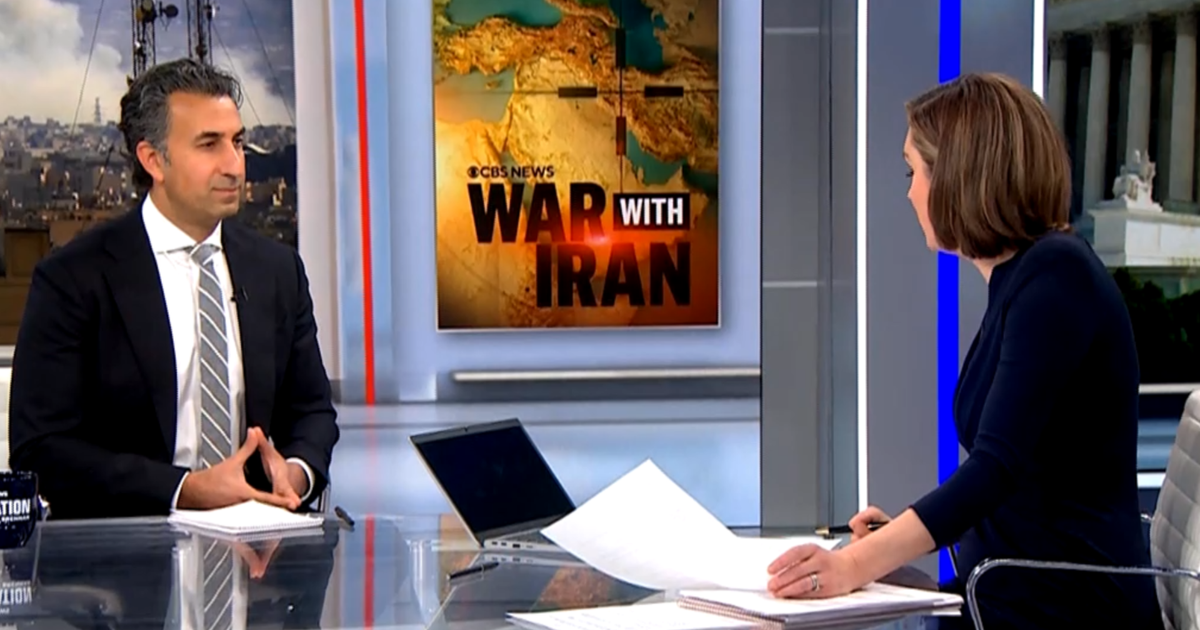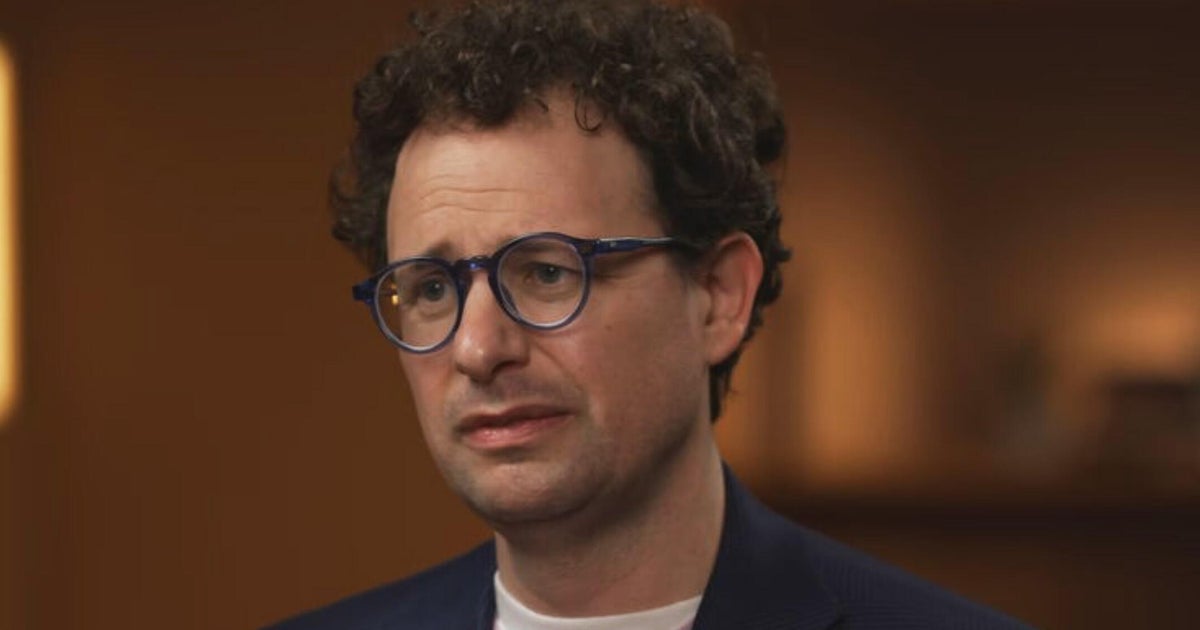Transcript: Senators Joni Ernst and Kirsten Gillibrand on "Face the Nation," May 16, 2021
The following is a transcript of the interview with Senators Joni Ernst and Kirsten Gillibrand that aired Sunday, May 16, 2021, on "Face the Nation."
JOHN DICKERSON: The push to overhaul the military's handling of sexual assault cases is moving towards becoming law thanks to the collaborative efforts of New York Democratic Senator Kirsten Gillibrand and Iowa Republican Senator Joni Ernst. The Department of Defense has maintained that they need to be in charge of prosecuting these cases, but Senator Gillibrand told us a lot has changed in the eight years she's been pushing for this bill.
SEN. KIRSTEN GILLIBRAND: unfortunately, because of their lack of ability to get this done, the rate of sexual assault continues to climb. But the rate of cases going to trial and the rate of cases ending in conviction is going down. So under no measure was it getting better. What also recently happened was there was a report out of Fort Hood because a young woman named Vanessa Guillen was murdered and they did a review of what that place was like. And they found it to be a toxic climate, so toxic that sexual harassment and sexual assault was not only rampant, but it was a permissive atmosphere for that type of behavior.
JOHN DICKERSON: Senator Ernst, you were a commander in the National Guard. How has your thinking evolved on this issue since you've been working on it?
SENATOR JONI ERNST: Well, this has been a very, very concerning issue for a number of years. Now, I do believe that, of course, the- that within the command- the chain of command, there needs to be some oversight. Because of that Fort Hood report, the horrible behavior, that bad command environment, it has really been obvious to me that we need to make a- a very different change. A Large part of that is prevention. We know it's necessary to- to focus on that, because by the time we have a perpetrator and a survivor, then we know we've failed.
JOHN DICKERSON: Senator Gillibrand, you have always pushed for taking the investigative power out of the chain of command. Why is that so important in this legislation?
SEN. GILLIBRAND: Well, it's actually not the investigative power. It's the decision-making power about whether a case should go to trial after the military police have completed their investigation. And so we believe, based on what survivors have told us, is that if you have a trained, unbiased military prosecutor who makes that fundamental decision about whether a crime has been committed and whether there's enough evidence to go forward to trial, two things change. One, the prosecutors are going to choose different cases because they have better training. So they'll have better judgment about which cases they can take to trial and whether they can be successful. And second, the perception of the survivors will be that someone who is unbiased, who doesn't have skin in the game, who doesn't know the accused or the accuser, who doesn't have an interest in prosecuting one person or protecting one person over the other because of who they know and how valuable they are to the unit. This allows for professionalism in the adjudication of these cases. And we believe that a trained military prosecutor has the experience and know how to do this in an unbiased way. That will allow the survivor community to come forward more often.
JOHN DICKERSON: Senator Ernst, one of the main critiques of this decision to move out of the chain of command is that it undermines in a kind of- in specific and in general the ability of a commander to hold his troops accountable and- and that it changes the commander's role. What's your response to that?
SEN ERNST: Well, that has been my concern in the past. And certainly we want commanders to have control over their units and the- the soldiers or airmen, Marines, sailors within those commands. But what this does is still allows the notification of that commander said that the commanders still can go forward and make changes within that command. They should understand if there is bad behavior happening in that command, then they have the opportunity to fix it. And it is important because this will be a small number of crimes committed within the military. However, it will have absolutely the effect that we are hoping for, which is that it will go to a specialized prosecutor that will then be able to evaluate if that case moves forward or not. The commander still has the opportunity to discipline within the unit and create a much better, positive command climate.
JOHN DICKERSON: Senator Gillibrand, in- in 2014 John McCain told a story of a woman who came to him and said- asked him about her daughter entering the service and he said he could not give his unqualified support because of the sexual assault conditions in the military. If someone came to you and asked you the same question, could you give unqualified support or would you only do that after this legislation passes?
SEN. GILLIBRAND: I would support any young person's desire to go into the military because it takes someone of enormous courage, bravery and selflessness to put themselves in harm's way on behalf of others. But my job is to make that safe for any person going into the military. And so we believe that this professionalization makes a difference. One, it will make survivors and victims more comfortable and more confident about this system. And two, it'll have better outcomes because why are we asking commanders to go through these complex case files? Maybe when they're deployed in Iraq or Afghanistan, when they should be focused on winning a war and training troops with the complexities of a legal litigation? This should be given to a trained military prosecutor so they can focus on their day jobs, the ones that are so important.And that's why we believe this one change will help again, professionalize the system and give survivors hope that their claims will be taken seriously.
JOHN DICKERSON: Senator Ernst, you've talked about how you worked with Senator Gillibrand on this. Is this a template for bipartisan- other kinds of bipartisan work that can be done? And if so, what are the component parts of being able to make bipartisan agreements?
SEN. ERNST: Well, most certainly this is the template. And I do hope that America is watching and understands that there is still bipartisanship in the United States Senate at work in your United States Capitol. That give and take process that we went through to arrive at a solution that has gained the support of 61 co-sponsors. So this is a template. We want Americans to see that- that bipartisanship is alive and well. It takes friendships. It takes a lot of discussions and certainly a partnership and finding compromise through that collaboration. This is what the rest of the Congress should be doing at a time like this too, is taking a very real, a very personal, a very intimate issue and finding solutions. That's exactly what we have done in this case.
JOHN DICKERSON: Senator Gillibrand, anything you would add to that?
SEN. GILLIBRAND: I think many people in Congress are bipartisan. And we just have to keep reaching across the aisle, finding that common ground and building solutions from the ground up. That's something Joni and I have been working together on the Armed Services Committee for the last six years, and we'll continue to do it.



